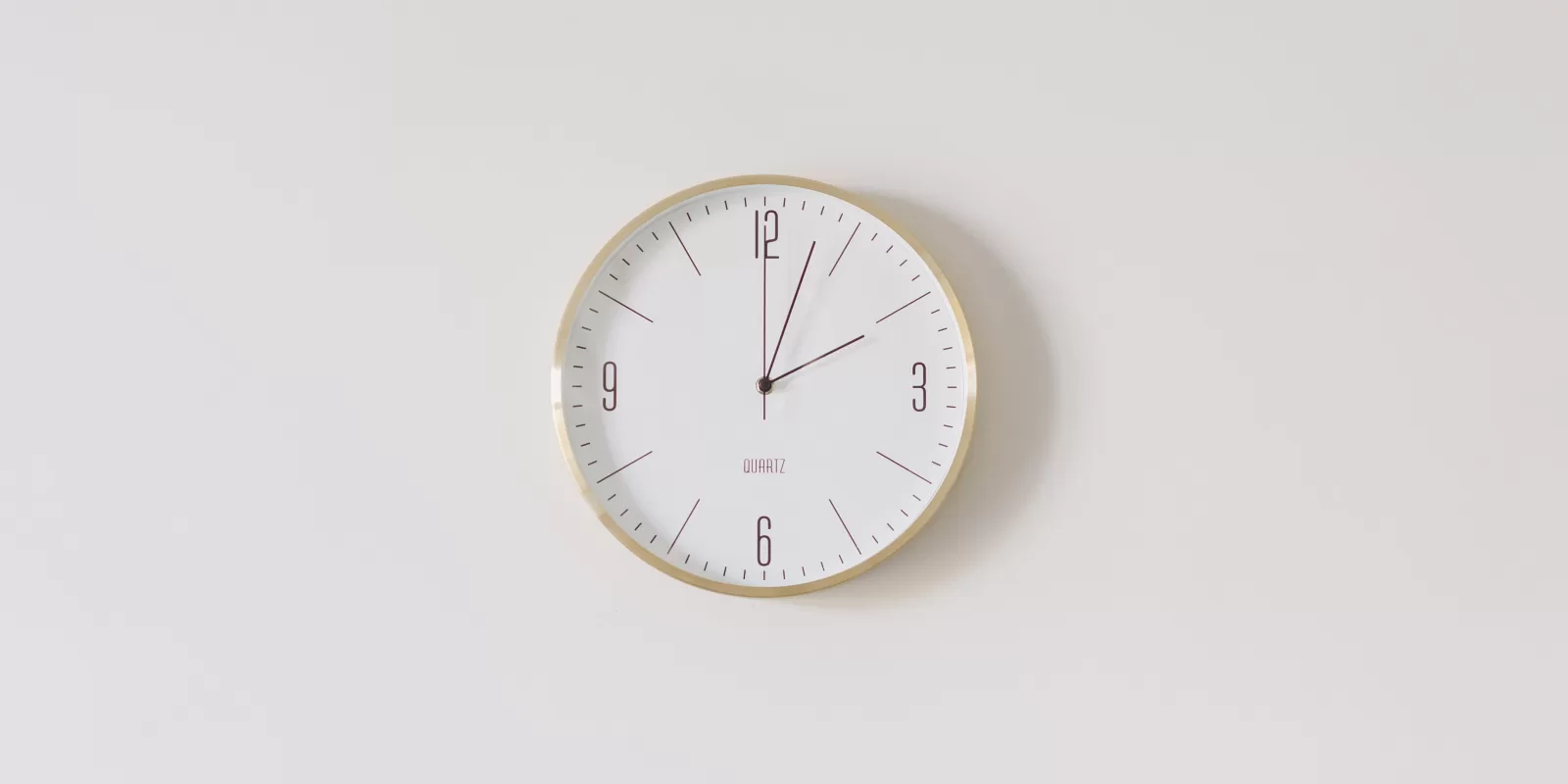 Our focus seems to be becoming harder and harder to hold. It’s no secret that our attention spans have gone to complete shit. Our phones and social media apps are programmed in a way that keeps us coming back. Temporary dopamine floods your brain when someone likes your photo, sends you a DM, or interacts with you in any way.
Our focus seems to be becoming harder and harder to hold. It’s no secret that our attention spans have gone to complete shit. Our phones and social media apps are programmed in a way that keeps us coming back. Temporary dopamine floods your brain when someone likes your photo, sends you a DM, or interacts with you in any way.
Our collective addiction to our phones, televisions, and other screens makes it harder to be present and focus on other daily tasks that need our attention. Especially if you throw neurodivergence into the mix. Many of us, probably more than we know, live with ADHD or autism, which makes concentrating next to impossible.
Focus is becoming more of a learned skill and consistent practice than a given. To increase your focus level, you must commit to exercising it like any other muscle. Whether you’re in school, at a mentally demanding job, or want to get focused on hobbies or your side hustle. Keep reading to learn how to increase your daily level of focus.
Change your Environment-
Does staring at the same four walls bring you no motivation or inspiration? If you work from home or in an office, ask your boss if they’ll allow you to break up your working space. Obviously, certain jobs have certain requirements for good reason, and this may not be possible.
However, if you’re mostly working from a computer with minimal face-to-face collaboration, see if you can switch it up. After COVID lockdowns, many employers have had to shift how they let their employees work.
If you find you’re more productive a couple of days a week at home and a couple of days a week in the office, what’s the harm in asking? When staying in the same spot daily, the mundane nature can lead to boredom, leading to less motivation and efficiency. If you can, try to switch up the location of your working areas as much as possible.
Go in Public-
 If you notice you have a harder time getting work done when no one’s around because you’ve spent more time on TikTok than on the task at hand, head out to work in a public space.
If you notice you have a harder time getting work done when no one’s around because you’ve spent more time on TikTok than on the task at hand, head out to work in a public space.
If you’re at a library or coffee shop with other people around, you’ll be more likely to look like you’re doing work, so those around you won’t ask themselves, “What are they even doing here?”. Sometimes, the perceived judgment of having others around you can be enough to kick you in the butt to be more productive.
Keep Your Space Clean-
Our brains have a harder time focusing when we’re in a chaotic-looking environment. Tidy up your working space before attempting to work. Keeping things decluttered will lend you much more focus when your attention is not pulled to piles of clutter or mess.
Time Block-
 By having a large number of tasks or a mentally challenging task, we can get overwhelmed and have a hard time beginning. By using the Pomodoro method, you can break up your work into smaller increments to get the ball rolling.
By having a large number of tasks or a mentally challenging task, we can get overwhelmed and have a hard time beginning. By using the Pomodoro method, you can break up your work into smaller increments to get the ball rolling.
The Pomodoro method requires you to sustain focus on the task for a solid 25 minutes with absolutely no distractions. After that’s complete, you can take a 5-minute break. You repeat this method up to 5 times a day for one task. If it’ll take more than 5, you’ll need to break it up into multiple days. It also requires you to start with your most important assignment and work your way down to your least. You can’t move on to the next task until you’ve completed the one prior.
By starting with the hardest, most crucial task and tackling that first, the others will feel like a breeze. We might have a hard time focusing on a task that we know will take three and a half hours to complete. By breaking it up into smaller bite-sized pieces, it becomes more digestible.
Concentration Music-
 Every brain is different and requires different stimulation to focus. Some people need complete silence while others like a playlist in the background. Listening to this 432Hz concentration music is a nice combination of not having total silence and not being distracted by lyrics.
Every brain is different and requires different stimulation to focus. Some people need complete silence while others like a playlist in the background. Listening to this 432Hz concentration music is a nice combination of not having total silence and not being distracted by lyrics.
Browse YouTube to find other focus-based audio and find which soothes your brain the most for the utmost concentration.
Neurodivergent-
Those who live with conditions like ADHD or autism could have a more difficult time focusing. Your boss might insist that you work all day from your desk, even if the environment is not conducive to productivity and focus. If so, talk to your doctor to see if you can get something in writing to explain your condition. Some people need certain settings to make their brains cooperate better.
Of course, every workplace is different and might be easier for certain industries than others. See if it’s possible to collaborate on a solution that works best for you if you need to work in a coffee shop or need absolutely zero distractions at home. Show your boss how this new arrangement would lead to higher levels of productivity.
Explain your condition with as much info as possible and show them why your focus levels would differ from those that are neurotypical. Hopefully, more employers will be understanding about these topics. If they aren’t, then approach your local labour board and see what rules and regulations your employers must abide by. Everyone deserves to feel that they have the potential to thrive in their work environment.
Meditate-
 How can anyone focus when our minds are running at a hundred miles per hour? By practicing mindfulness, we can slow the rate at which our thoughts occur. If you’ve never meditated before, start with 5 minutes a day, and when ready, work your way up to 10, 15, and 20 minutes.
How can anyone focus when our minds are running at a hundred miles per hour? By practicing mindfulness, we can slow the rate at which our thoughts occur. If you’ve never meditated before, start with 5 minutes a day, and when ready, work your way up to 10, 15, and 20 minutes.
People run from mediation, thinking there’s a right and wrong way to practice, but there’s a myriad of options for you. Try different methods and see what works. Meditate in silence, use a guided meditation, rain sounds, chant, sit down, or lie down, and meditate in the morning, afternoon, or night.
Find a way you like before swearing off meditation forever, missing out on all of the amazing benefits. By meditating daily, you’ll slowly notice your focus increase, and distractions won’t have you in a constant chokehold. To learn more about meditation, read our post listed here.
Don’t Worry-
Find a suitable time to work on any projects when you know you won’t be disturbed. If your group chat is popping off, silence your notifications. If you have children, aim for when they’re napping or at daycare, or at school.
Life happens, and sometimes distractions are unavoidable. However, aim to schedule your important tasks when you know your distractions are less likely to occur than other.
Well-Being-
 Take good care of yourself by getting enough sleep, eating healthy foods, exercising regularly, going outside, or getting in nature. These methods all work wonders for your mental wellness. The better your mental well-being is, the easier it will be for you to focus.
Take good care of yourself by getting enough sleep, eating healthy foods, exercising regularly, going outside, or getting in nature. These methods all work wonders for your mental wellness. The better your mental well-being is, the easier it will be for you to focus.
Get Comfortable with Boredom-
 Often focus is difficult to achieve because our brains are terrified of being bored. When we have a job, assignment, or task to complete, our brains know that it’s going to take mental capacity, and we might feel under-stimulated. That’s okay! We humans need to learn to get more comfortable with boredom.
Often focus is difficult to achieve because our brains are terrified of being bored. When we have a job, assignment, or task to complete, our brains know that it’s going to take mental capacity, and we might feel under-stimulated. That’s okay! We humans need to learn to get more comfortable with boredom.
Boredom is not inherently bad; it’s just not particularly exciting. We won’t be having a blast 24/7, every day of our lives. It’s okay to sit in boredom and hunker down.
When we get more comfortable with feeling bored, not only will we have an easier time focusing, but we might dump bad habits like excessive screen time or harmful addictions like excessive nicotine intake, drug use, or binge drinking. As much as we want a fun and exciting life, sometimes sitting in boredom is okay, and we need both ends of the spectrum.
Final Thoughts-
Focus is having a harder and harder time keeping our attention. Our addiction to constant stimulation, either from our phones and social media apps or other addictive vices, has made focusing on our to-do lists even more challenging.
Try using the tips listed here to garner more focus and attention in your life. Try to switch up your environment, work in public, time-block, meditate, listen to concentration music, find undisturbed time, and get more comfortable with boredom. These ideas can all help your brain to focus.
Just like the muscles in your body, your brain needs to be exercised. If focus comes harder to you, then practice it like you would any other muscle. It might take time, but it will be so worth it when you find yourself having an easier time completing tasks and projects.
Comment below and let us know if you’ve noticed a difference after practicing these techniques.




